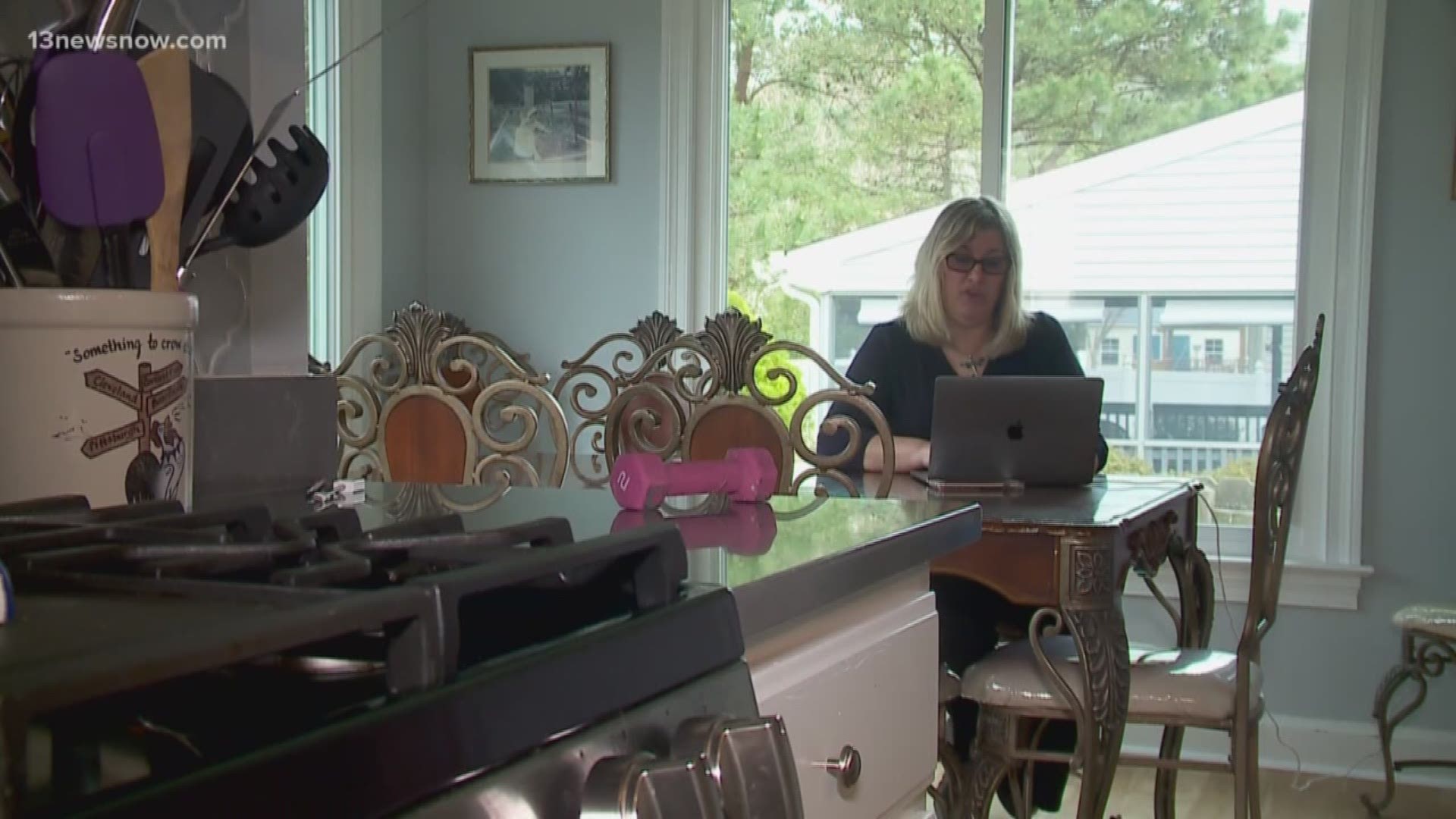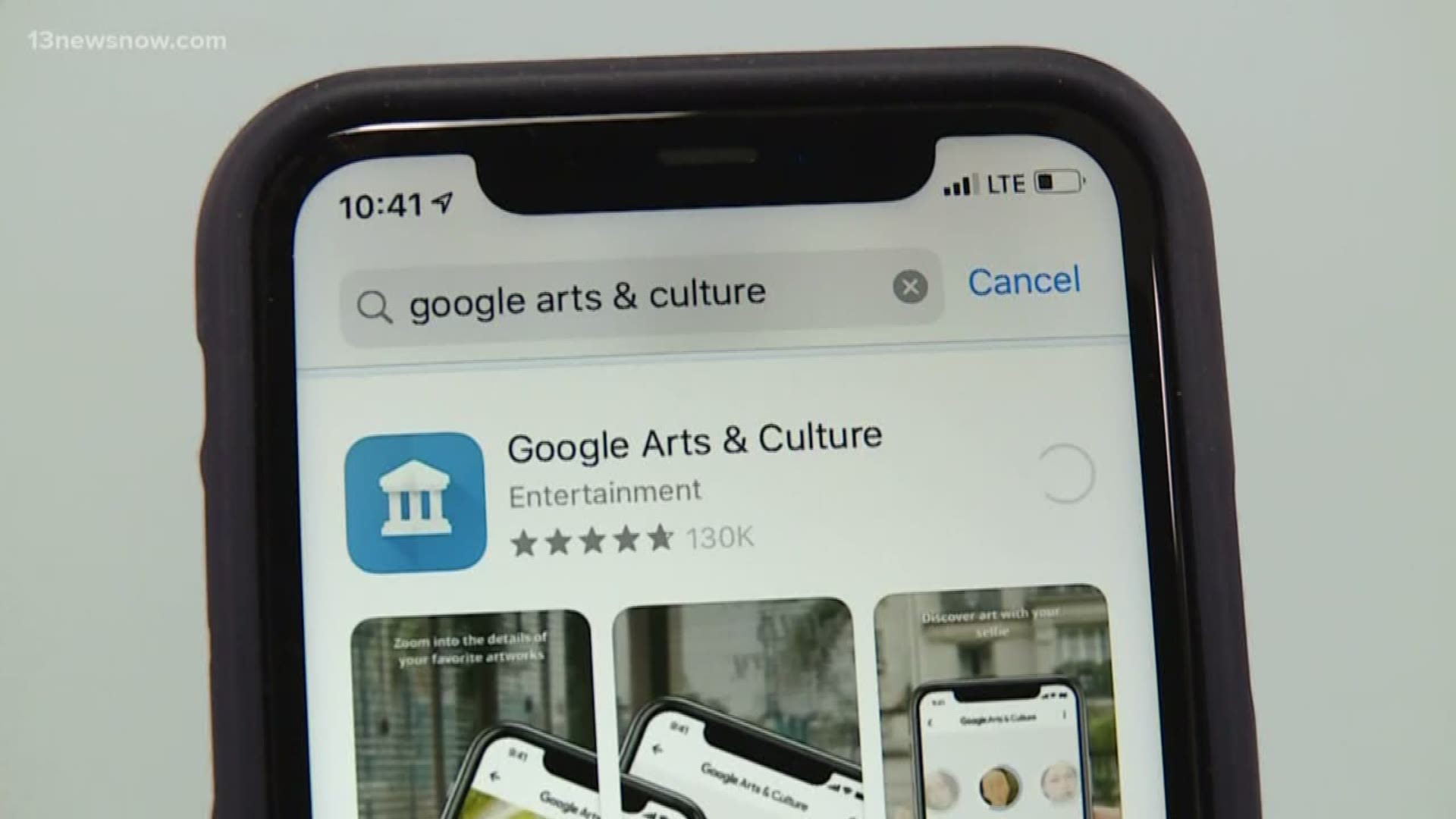NORFOLK, Va. — Claudia Allen, a clinical psychologist and the director of behavioral science at University of Virginia, said one of the biggest challenges of coronavirus quarantines will be to maintain mental health while staying home.
"While telecommuting initially sounds like an unplanned vacation, in reality, isolation, lack of schedule and not enough to do are a foolproof recipe for depression," Allen said. "Luckily, the scientific literature on wellness and mood informs us what will help us avoid depression (and thrive) if stuck at home."
On March 16, the university released a page of tips for keeping your mood up if you need to self-quarantine. Here's some of her big suggestions:
- Get dressed
Allen said even if you don't need to wear your usual work uniform or business clothes, you shouldn't stay in your pajamas.
- Keep a routine
To stay balanced, Allen suggested setting your alarm for your usual time and getting to bed at your usual time. Further than that, she said you should also be planning your mealtimes, reading time, exercise and chores - not to mention any telework you may have.
She recommended scheduling both things you need to do and things you like to do.
- Schedule your week
Allen said it was important that your weekends look different from your week days. People need structure and variation to keep them stimulated.
- Get outside
If you're well enough to take walks outside, do! Spending time outside is okay if you're maintaining recommended social distancing.
Allen said even if you can't leave the house, there are plenty of exercises you can do inside. Exercise has a positive effect on mood and is sometimes a prescribed treatment for depression, Allen wrote.
- Be intentional
It doesn't support mental health to drift aimlessly through spare time. Allen recommended picking something you've wanted to learn about and use spare time to learn about that.
"Plan to come out of this quarantine with a new skill or hobby," she wrote.
You'll need to collect any books or materials about this new endeavor ahead of time, or order the supplies to be delivered.
- Limit social media
Allen said scrolling through social media feeds is not as effective a way to connect with other people as scheduling group video chats, or calling friends and relatives.
- Help others
"Helping others is a known mood-booster," Allen wrote.
She recommended checking on people who might be vulnerable by phone or email.
- Spread out
Allen said suddenly sharing so much time with family and roommates could cause irritation if it isn't handled responsibly. She said it's a good idea to schedule intentional "together time" and "separate time."
- Shift your mental space
"Use principles of mindfulness to shift your mental stance from frustration about the situation to curiosity," Allen said.
The coronavirus pandemic is a unique event, and will stay of historical interest well past this period of quarantine.
Allen recommended taking the mindset of a journalist or anthropologist and perhaps even keeping a journal of your coronavirus experience.



